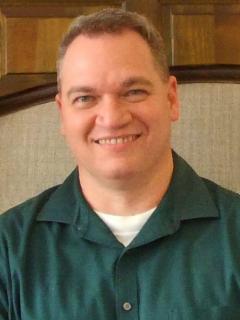October 2021 Welcome

Rev. David Pyle, Regional Lead
Returning
One of the questions I often get from congregations about sabbaticals is why? Why do congregations offer to ministers and other religious professionals an extended time away from the congregation and from the majority of their ministerial and religious professional duties? What is it about working as a religious professional that requires such a time of reflection, recovery, and reformation? And I would share with congregational leaders that sabbatical was important due to the demands of serving as a religious professional, or in the case of ministry sabbatical was important for the theological and spiritual reflection from which authentic ministry is grounded, or that sabbatical was necessary for a religious professional to reassess and reform their ministry for the long term.
All of that is true… and it took my returning from my first sabbatical in over 15 years as a religious professional to see an even more important reason for sabbatical. And that is to create the frame-bending, assumption challenging, and in some ways difficult experience of returning.
I cannot speak for all religious professionals, but I know that my work as one these last 15 years has depended on patterns. Whether it was the pattern of producing the monthly newsletter when I was a congregational administrator, or the pattern of writing and preaching a sermon each week when I was a parish minister, or the pattern of staff meetings that is part of my having been on the UUA Staff these last seven years, the work of a religious professional is often built around patterns that arise from the lives of the institutions we minister within. And with these patterns come assumptions about what is important, what matters, and where our energy and focus need to be.
I think one of the reason many ministers and other religious professionals develop such patterns is to create the space for those events in the life of a congregation that cannot be predicted, the unexpected death of a beloved congregation member, or the conflict that arises between two committees, or the act of injustice that occurs in the community. Because there are some things about ministry that cannot be predicted, we seem to create as much predictability as possible in other parts of our ministry.
Sabbaticals for Religious Professionals, and I would also say sabbaticals for long-term congregational lay-leaders, have a natural way of disrupting those patterns, allowing the assumptions behind them to be re-examined. Allowing for the theological reflection that can be so difficult amidst the flow of ministry. We return not simply refreshed, but different than we were before. Our perceptions are different, and the patterns that had served so well before no longer fit just the same. And this not only allows but requires us to change, to grow, to transform.
I know I am living into that change now, as I return from a 10-week sabbatical this past summer and re-enter the work of the MidAmerica Regional Staff. It is good to be back… and it is good that the ministry does not feel quite the same. Such is where growth comes from.
It is good to be back…

